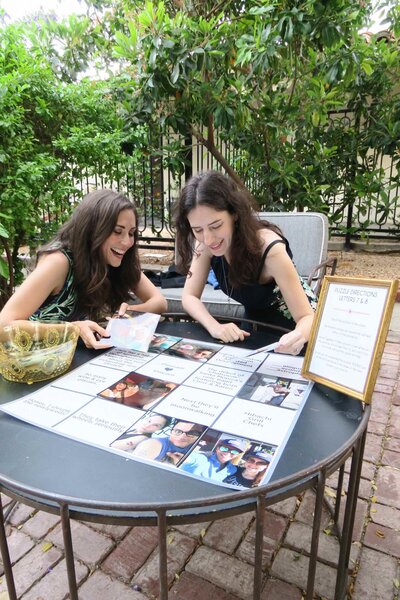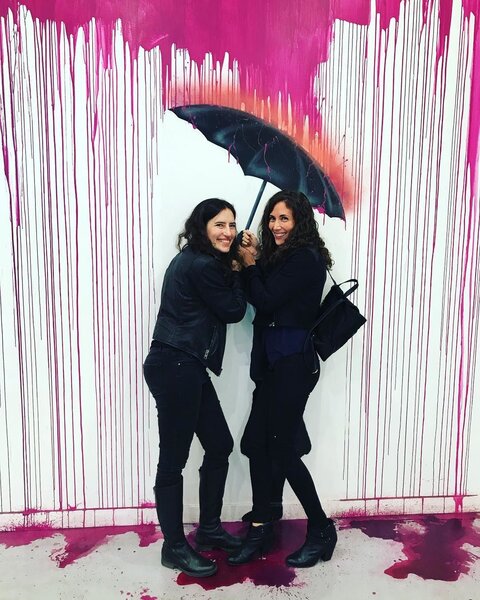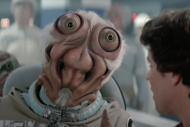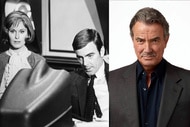Create a free profile to get unlimited access to exclusive videos, sweepstakes, and more!
Nerdy Jobs: Meet the designers who create at-home escape rooms and other puzzle experiences
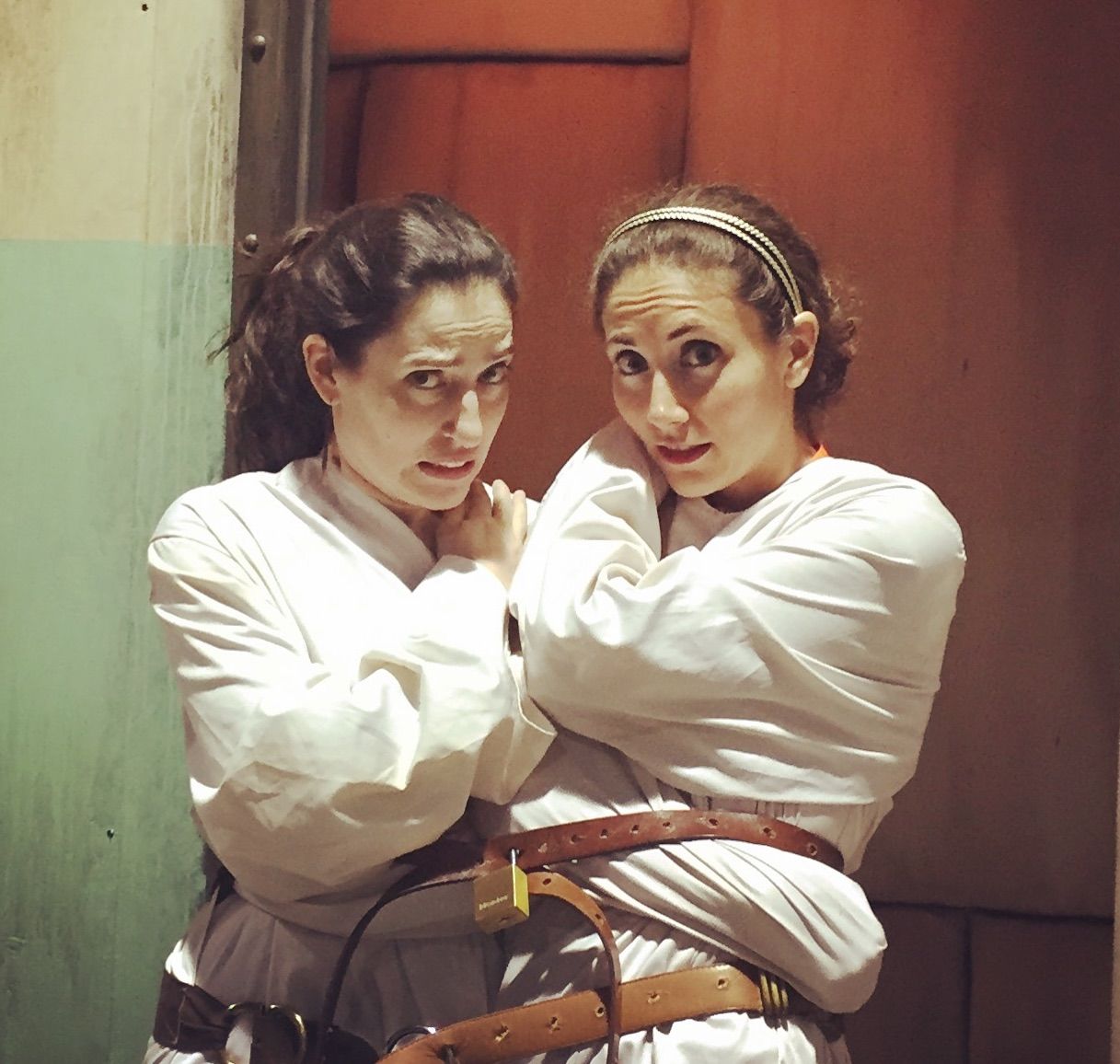
Juliana Patel and Ariel Rubin, co-founders of the company Wild Optimists, love puzzles and escape rooms so much they started designing their own. Their first endeavor was the Kickstarted "Escape Room in a Box," a play-at-home escape room game that was bought by Mattel Games and is now available in retail stores everywhere.
The two are working on future tabletop versions, but have also expanded their business to consulting for traditional escape rooms and event-specific puzzles and experiences. SYFY WIRE interviewed the duo to learn more about what their nerdy jobs entail, and what advice they have for those looking to build a nerdy career of their own.
How did you two make the leap from being fans of puzzles and escapes rooms to creating "Escape Room In a Box"?
Rubin: We became enthusiasts early in the escape room craze when escape rooms were all in pretty bad neighborhoods — nowhere you'd want to hang out afterward. So we thought it'd be fun to host an escape room game night at one of our houses, but we couldn't find one to buy!
As tabletop and escape room lovers ourselves, we knew the audience for the two was basically composed of the same people, so we decided to create one ourselves. It was a bet that really paid off as our first game is available now from Mattel and our next game in the series, Flashback, will be out in just a few months!
What other types of projects do you work on besides the tabletop escape room games? How did you branch out into these different types of projects?
Rubin: We create puzzles and games to increase audience engagement by giving players a chance to be the hero for all kinds of entertainment including theme parks, live events, immersive theater, tabletop games, and escape rooms. Our biggest source of business development is from speaking about puzzle design at conventions such as Up The Game, an International Escape Room Convention, and The Immersive Design Summit. After that, it is all networking.
Patel: But in all honesty, timing has probably been our biggest ally in business development. After staring at screens all day, audiences are hungry for an excuse to interact with the world around them. Creating games and puzzles that invite them to play, discover, and really experience their environment in a whole new way is a very natural fit for so many different forms of entertainment right now. We've found that most places we approach are really receptive to the idea.
Can you share what a typical workday looks like for you?
Rubin: In the freelance world I'm not sure there is a typical work day! After we drop the kids off at school, we call each other to go over what each of us is doing that day. Juliana handles more of the logistics, I do more of the arts and crafts, and we both do narrative and puzzle design. We work until it is time to pick the kids up from school and then touch base again after we put the kids to sleep to continue working until we go to bed. We try to get together at least once a week for brainstorming sessions — normally somewhere with coffee and cake.
Patel: Leisure time has completely gone out the window as we build our business from the ground up, but luckily we get to do a ton of fun stuff in the name of research.
Can you talk a little bit more about the puzzle-making process? How do you decide how different components of a puzzle or experience work together? How long does it take to create a final product, whether a tabletop game or an event-based puzzle experience?
Rubin: The timeline varies wildly based on the product we are working on and the deadlines we have to meet. As for the process, we always start with the narrative. We look for moments in the story where it would naturally make sense for there to be some sort of puzzling interaction. The goal is to find moments where we can add to an audience member's understanding of the story through an interaction or puzzle. Then we move on to thematic elements, the sort of objects that you would find in this world and think about how we can create puzzles with them.
Patel: We spend a lot of time working through the flow of the game, guiding our players so that they will find the experience challenging, engaging, and, most of all, fun!
And while the design process is always a blast, everything we make is truly forged in the fires of playtesting. We always test our games on a ton of different groups before putting them out in the world in order to ensure that the experiences we create will be thoroughly enjoyed by the people playing them.
What's your favorite part of your job?
Patel: Our mission statement is "Finding New Ways To Play" and that really is my favorite part. I absolutely love that I get to collaborate with people who are building out awesome things and dream up ways to make them even more fun.
Rubin: I love watching people shine when they play our games. Particularly people (almost always female) who say, "Oh, I'm not good at puzzles," and then, suddenly, they have that one hero moment where they know what to do and everyone is cheering them on. It's such a joy to see people laughing and connecting while playing something we created.
On the flipside, what's the most challenging part of your job?
Patel: The biggest challenge is time. There is so much to do and so much more that we want to do that I just wish there were more hours in the day. Especially when we are in crazy play testing mode and it feels like every second of our lives are swallowed up with scheduling, running the game, redesigning, and then doing the whole thing all over again.
Do you have any advice for other nerds looking to make one of their fandoms or passions into a career?
Patel: Do it! This is such a dream career, and we still pinch ourselves all the time that we actually get to do this for work. But the other side of the coin is that we work like crazy people to make it happen and you need to be prepared for that.
We didn't just "launch a Kickstarter" — we did massive amounts of research on how to succeed at Kickstarter, did absolutely everything we could think of to market it and reach out to the community, responded to every single backer and comment, and essentially ate, slept, and breathed Kickstarter while it was running. We have so much passion for this, and that is what drives us to work harder every day, seek out new business all the time, and constantly be putting out the best product that we can.
